#[oh boy this got long!]
Explore tagged Tumblr posts
Text
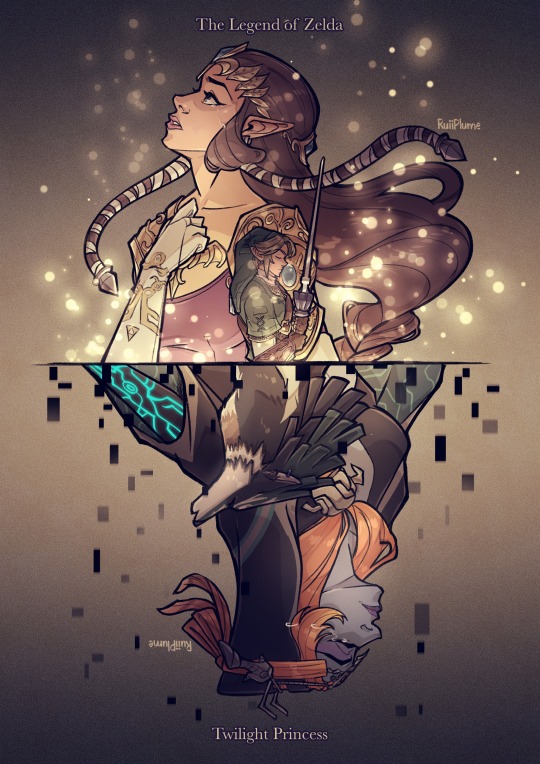
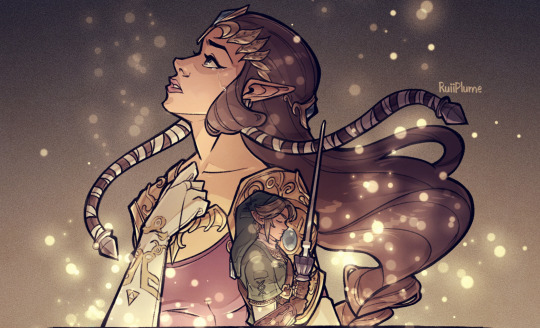
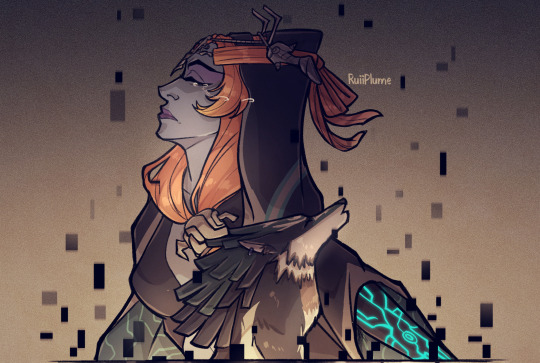
Happy 17th anniversary Twilight Princess ✨
#ruii.art#art#artists on tumblr#legend of zelda#twilight princess#link#zelda#midna#wolf link#spedrun that shit all day#finally got it done#i'll post a comparison tomorrow#since it's a redraw of my old tp art#and OH BOY it's a long story imma explain how and why lol
4K notes
·
View notes
Text
Ideology of Exceptionalism and Gravity Falls; meta and character analysis

I had a whole ago read a post by @icanlife that had a quote by Alex Hirsch on Ford's greatest flaw, and wanted to explore what the flaw is, which is the ideology of exceptionalism; in the exploration, I’ll touch on what it is and how it is used in abusive relationships and cults, as well as how it drives multiple Gravity Falls characters and consequently how it impacts relationships between these characters, and how the show ultimately refutes exceptionalism.
Quick note here; I am not in any way, shape or form a psychologist nor have any formal training in psychology; this is written from my own experiences with this ideology and my own forays into psychology and trauma-informed learning. It is also written with a loose understanding that is likely not broad enough to cover all references to cults, extremist groups and abusive relationships.
The Ideology of Exceptionalism
First of all, we have to get through a drier bit, which is… what is the ideology of exceptionalism and how does it arise? Might be fairly obvious, but it is the belief that you are, or belong to, a group of exceptional people, thus more important and worth more than anyone else; ie, those who don't qualify as 'exceptional'. It is often a subconsciously learned ideology. Now, what qualifies one as exceptional can be extremely varied; generally it revolves around something that provides some form of privilege. Thus, it might be, as the main exceptionalist idea in Gravity Falls, 'intelligence', or power, or it can be such things as attractiveness, quantity of money one has, species, nationality, or skin colour and ancestral heritage. The ideology of exceptionalism, being by nature hierarchical, devalues, and at its worst, openly and violently dehumanizes those who do not qualify as exceptional.
For why exceptionalism occurs is an extremely broad topic, but I've personally found that, for exceptionalism revolving around intelligence, it's a result of a poor sense of self-worth, and having one's self-worth tied to what makes one exceptional. Poor self-worth itself (again, broadly) is a result of childhood trauma from a lack of positive affirmation and unfulfillment of the emotional needs of the child. Meanwhile, self-worth becoming tied to the quality of exceptionalism generally is a result of when positive affirmation was pretty much solely provided around their 'exceptionalism', especially when provided derogatory commentary, or a blatant example of how they would be treated if they aren't 'exceptional'. As a result of the general lack of affirmation, self-worth then becomes often solely reliant on the qualities of exceptionalism, as that is the only way for the child (and later, adult) to get affirmation of their worth, as well as out of fear of being ‘not worth anything’ like the examples of ‘non-exceptional’ people they have been given.
This is especially likely to occur when the child is a social outcast; the adoption of the hierarchical ideology of exceptionalism, and the devaluation/dehumanization of others often occurs subconsciously as an avoidance/minimization tactic from pain. This is to say, the child, and later the adult (if healthy self-worth is not established) goes 'it doesn't matter what the non-exceptional people say or if they accept me since I matter more than them because of my exceptionality'. It can even be taken further, that being shunned is part of one's exceptionalism, and becomes part of the qualifier of being exceptional. For instance, 'they just can't understand because they aren't exceptional and that's just a part of being exceptional'. This idea also neatly tailors into the part of the concept of being better then others means you are separate from others; this can be taken that someone who is special, needs to be alone to be truly special.
Obviously, exceptionalism is not a healthy coping mechanism for poor self-worth, as often such people constantly feel the need to prove and show off their exceptionalism to gain that affirmation and avoid rejection, which is stressful. As well, it often negatively impacts their relationships with other people as a result of the arrogance of believing that they are better than most others, or even deliberate sabotage due to their arrogance. This occurs as they flatten the complexity of human experience to black-and-white hierarchical categories of exceptional/not-exceptional through constant judgement of those they meet, and often refuse to engage with people who don't belong to their 'exceptionality', or even people they simply don't like, even if they technically qualify. Generally, those that they do like or have close relationships with, often due to being similar, are automatically labelled as 'exceptional'. Those judged as ‘exceptional’ also become privy to the open judgements of ‘non-exceptional’ others, out of a subconscious belief by the exceptionalist that the other believes similarly; something that may strain their relationship if the other doesn’t ascribe to exceptionalism. This all culminates in the exceptionalist being blind or even adverse to the diversity of experiences, which makes it difficult to create relationships and community outside of echo chambers of their own beliefs (if they can even find this), and subsequently, these people are often isolated and have very few to no close relationships with people.
However, all humans require connections with other people, relationships where one can rely on others emotionally and physically if needed and feel accepted; they also require to feel like they are worth something, that their life has meaning. Lacking meaningful connections and having a crippled sense of self-worth, a deep yearning hole is left in these people. Exceptionalism, especially as it is a narrative constantly pushed by Western society as it validates hierarchies, is then employed as a (often subconscious) trauma response to assuage this yearning hole, with arrogance and denial. And depending on the circumstances, it can be a very strong and definitive trauma response for people.
This isolation and lack of self-worth is catnip to abusive relationships, including cults and extremist groups. These types of relationships often heavily rely on isolating their victims or pulling them into echo chambers of solely the abuser’s rhetoric, to redefine what is healthy through gaslighting; as the exceptionalists are already isolated, this makes them extremely susceptible. They also often provide these people affirmation, and in these cases especially about their exceptionalism, thus confirming their self-worth, their 'specialness', while also providing them the connection they have been lacking, either through the cult community or through the abuser’s own presence. These emotional needs, which haven’t been met in a long time, if ever, begin to be fulfilled; something that abusive relationships and cults hinge on, rather than any form of logic.
Ideology of Exceptionalism and Gravity Falls
The main characters within Gravity Falls which are heavily ascribed to exceptionalism would be both Ford and Bill; this characterization deeply impacts the story and their relationships with others (technically the Northwest are another case regarding wealth, but less directly impact the storyline and thus tangential; Gideon also is an example, but as a mirror of Bill). With each of these characters I’ll go into detail within their sections on the way they began to ascribe to exceptionalism, and how it plays out later in their relationships; I will first begin with Ford, then move to Bill. Then, to cap it off, I’ll go into the characterization of Stan and the way Gravity Falls refutes exceptionalism.
Ford and Exceptionalism
Firstly, the quote from Alex Hirsch that kicked this whole baby off, as mentioned previously;
“Ford sees Dipper as someone who’s special like himself. That’s Ford’s great flaw, his arrogance is he believes that there’s special people, and everyone else. That human attachments are actually weaknesses. And the song and dance that he’s giving Dipper right now, is the song and dance that he gave McGucket, back when they were younger… ‘You and me are different, we’re better than everyone else. We have a path that no one else can understand, and only us can do this.’ It’s a very seductive idea for Dipper… Dipper is a smart kid, but Ford’s projecting. Ford loves Dipper because he sees someone who’ll tell him ‘yes’ to everything. Who’ll never challenge him, who’ll do a really insane dangerous mission.”
Very blatantly Alex Hirsch calls Ford out on his arrogance in the belief that he is special, in his belief in the 'lone hero' complex, in his belief in exceptionalism. And really, it should be no surprise that Ford does so, considering the way he's depicted as a social outcast as a child (other than Stan), and the way his parents have been clearly shown to be not particularly emotionally supportive (“I’m not impressed”); they don't provide positive affirmation except for his intelligence (mostly due to the possibility of money making through it…), while also actively comparing him to Stan who is derogatorily ‘not-exceptional’, and ‘worth less’. This all sets Ford’s self-worth up to be fragile, and other than Stan who wholeheartedly accepts him, he is isolated and invalidated; plus, the only other validation he receives is around his intelligence. All very classically fitting the profile for exceptionalism.

Image id: Stand and Ford when they were children, both clearly enjoying each other's company.
Ford’s belief in his exceptionalism catalyzes after the shattering of his and Stan’s relationship. Previously the twins are shown to do everything together, having a very close caring relationship; something unlikely if Ford thought he was better than Stan. Also, when Ford is talked to about his opportunities, Ford looks uncomfortable at the way they talk about Stan as inferior, compared to how he himself is being praised; but in the offer he’s simultaneously finally being validated, he’s being told he’s someone worth something, and he’s going to be someone worth something after this. And then the science fair incident occurs, and Ford loses that validation from his parents, from the judges and a future of more validation; after being promised validation and acceptance, it slips through his fingers. And in his anger of being denied that, it becomes easy to begin to slip subconsciously into the rhetoric the others have been feeding him; that he’s exceptional, that Stan isn’t, and he deserved to be recognized for his worth. So he breaks the relationship with the only person who accepted and validated him for who he is. With that loss of previous support, Ford becomes then deeply obsessed with proving his exceptionalism to the world to assuage that fragile self-worth, to become accepted, or even better, revered, confirming that he is someone of worth, someone special, like he was promised.
Ford’s obsession also doubly functions as a way to alleviate his guilt over shattering their relationship; if he’s exceptional as he believes, then he’s within the right to respond the way he did, as he’s worth more than Stan, he's better off alone, and he has a right to be angry over being denied that validation. As well, in much the same way as it is used as a way to alleviate his guilt over the end of their relationship, it is also likely used in a way to minimize the pain of being ostracized (although not directly depicted); afterall, Ford’s keenly aware and insecure about his social ineptitude and his six fingers as things that make him different from other people, case in point with his experience visiting Lazy Susans Diner. Thus it wouldn’t be unsurprising if he uses the idea of being worth more than those who ostracize him to imply it ‘doesn’t matter’ what they think. His ostracization by nature keeps him from generally forming close relationships, with the exception of Fiddleford (who much like him, is socially outcast, and intelligent) during his university days. As a result, he's isolated and acutely lonely, having lost Stan.

Image id: One of the missing Journal 3 pages in TBOB, detailing Ford's botched social interaction in Lazy Susans Diner. In the background is the print of his six-fingered hand.
In his obsession over being acknowledged, Ford, like many others who believe in exceptionalism, identifies strongly with the causes of his ostracization (his intelligence, his six-fingeredness) as part of, or wholly, makes him exceptional. It is obvious through his choice of study; with the grant he has been gifted, he chooses to revolve his work around the weird, the outcast, something that you see Ford gravitate towards being an outcast and deemed 'weird' himself (which in Journal 3 he openly talks about). Something that can be, much like him, framed as 'exceptional'. His work is even recorded in a journal that Ford deliberately chooses to put his six-fingered hand on the cover of. Intertwined with the way it becomes adopted into the idea of exceptionalism, is the keen loneliness from his ostracization and a deep desire to be accepted and a wish to find a community of other weird people.

Image id: Two pages from journal 3, labelled 'Myself', in which Ford is open about being weird, and a social outcast, while also noting his ambitions and that 'Gravity Falls, [is] the place that I fit in.'
Ford and Bill
All of this culminates in Ford becoming an incredibly easy target to manipulate by Bill. He’s desperate to be acknowledged (and thus accepted) by an authority figure so that his belief in exceptionalism is justified and his self-worth confirmed. And he knows he’s intelligent, that he's exceptional because people have told him so, but he just needs to prove it with something that shakes the world. And the grant is finally his second chance after the fair, but he's stuck, and the research is going nowhere, and he's in a town where he doesn't really know anyone and he’s so terribly lonely. And sure, he clings to his exceptionalism but if he can't even prove it then is he really exceptional? Is he even worth anything like he thought he was? And what about what he's left behind, rejected, because of his exceptionalism?
And THEN he finds an incantation and he ignores the warnings because maybe, just maybe, this will be his break to get that acceptance/validation he has been chasing his whole life?
And then it's better than that.
A god, essentially, shows himself to him, an ultimate figure of authority. And he tells him that yes, he is special, he’s worth more than other people, and Bill’s only showing himself to Ford because he is so much more intelligent than anyone else. Ford is suddenly getting his exceptionalism confirmed by a god of ancient knowledge, an immensely intelligent interdimensional being, and he’s also showering him with affirmations, specifically affirmations around what Ford's fragile self-worth is based on. And even better, he's delighted by Ford's six-fingeredness; he's not put off at all, it even becomes his main nickname for Ford, just like it used to be for Stan all those years ago. On top of it all, Ford's own social ineptitude doesn't phase Bill, another thing Ford is self-conscious about; Bill's own social ineptitude as he's not human probably makes Ford feel comfortable, knowing that's not expected from him.
Through Bill, not only does Ford find someone who validates his self-worth through intelligence and even confirms to him that his weirdness is part and parcel of making him special, he also finds someone who he regularly (generally) is in contact with, who enjoys talking to him and even banters with him familiarly. Hell, Bill even deliberately goes out of his way (literally possessing a whole wack ton of rats, then dream karaoke) to celebrate his birthday with him; how long do you think Ford has simply skipped his birthday since he had no one to really celebrate it with? The loneliness, beneath his arrogance and belief in exceptionalism, is being fulfilled; for the first time since Ford was a teenager, he's fully accepted by someone, social awkwardness, six fingers, exceptionalism and all.

Image id: One of the lost pages from Journal 3 in TBOB, the 'one thing led to another' page, with Bill and Ford singing karaoke and drinking together, both clearly enjoying themselves; Bill has an arm slung around Ford's shoulders.
So it's really no surprise at all that Ford fell for this, hook line and sinker. Hell, if I was in Ford's shoes I would fall for it just as hard. And I've seen a few posts floating around talking about how Bill is bad at manipulating, and no, he's not. He was able to pinpoint exactly what Ford wanted and needed, and provided that, was charismatic enough to provide that. Again, manipulation isn't about logic. It really isn't; it's about the emotional core in people, what people lack and what you can give them to slowly reel them in to sing your dance and song. And people will ignore vast swaths of red flags when you're finally being accepted, when you're finally getting your emotional needs met at least in some way or form. It's better than not having them met at all, such as previously. So Ford worshipping Bill is really not a surprise, especially as Bill deliberately stoked it.
All of this is part of why you see Alex Hirsch call Ford's belief in his exceptionalism his greatest flaw; because it allowed him to be very easily manipulated by Bill, and by its nature kept Ford isolated from others, evident by his arrogance in assuming he knows best and refusing to see other people who aren't as 'intelligent/weird' as him as worth getting to know, listen too and even reach out to ask help from, it's him believing he has to be the lone hero as someone whose 'special'. It's something that blinds him to the danger of his work around the weirdness of gravity falls because he’s desperate to seek a place where he and his weirdness belong, and it's something that plays out in each and every relationship he has because it's something he clings to so deeply. It's what cost him his relationship with Stan, who previously accepted him completely, and, as he's disinclined to form new relationships and as Bill actively strokes his paranoia (Trust No One…), ultimately further increases the hold Bill has over him. It's only Fiddleford’s presence as he works with Ford that allows him some form of outside reference and reprieve from solely Bill’s influence, something that Bill resents deeply and is clearly jealous and angry about, even if Fiddleford is helping create the portal. And it's ultimately Fiddleford, once he was aware enough of what was happening, calls Ford out on it, seriously jeopardizing Bill's influence over Ford; but Ford is too invested in the portal, in chasing his own ambition and caught up in Bill’s manipulation to take him seriously, until the incident with the trial, and Ford beginning to hear other voices then Bill.
Ford’s Exceptionalism and Wider Relationships
Now back to how it plays out in all Ford's relationships; we've already gone over it with Bill's influence, because it made him extremely easy to manipulate, and with his disregard of Stan in favor of validation of his exceptionalism. But Ford, as pointed out by Alex Hirsch, also exerts the ideology's seductive rhetoric to both Fiddleford and Dipper (who look up to Ford) in a similar way that Bill does with him (although there is a difference of it being used intentionally and maliciously, compared to subconsciously and earnestly, even if it is problematic). Ford, with his black-and-white view of exceptionalism, sees both Fiddleford and Dipper as people who are like him; 'exceptional', and so he treats them as such, and uses this rhetoric to coerce them into helping him.
For Fiddleford, the lure is how he can change the world, how he can be finally acknowledged if he helps Ford with the portal. And it works well; he willingly chooses to leave his own work and his wife and young son, to work with Ford. Much like Ford, Fiddleford himself is also a social outcast and regularly presumed less smart than he is, and he’s got a chip on his shoulder to prove himself, to gain acknowledgement and recognition from the world at large. Although Fiddleford has a family which presumes he’s not entirely lonely like Ford is, he also clearly has deep feelings for Ford, some which are hinted to be more than just ‘friendly’ feelings; it is likely the combination of the lure of validation and spending time with Ford, a kindred spirit that accepts him and an old friend/crush, that causes him to agree (afterall, it was Ford who made Fiddleford feel accepted and choose to stay at Backupsmore). And Fiddleford’s not even considered a partner, but rather an assistant to Ford due to Ford's arrogance, and he still drops everything to go! It’s more about their relationship and connection rather than validation, but that doesn’t stop Ford from espousing exceptionalism. And this is a distinguishing difference, because although Fiddleford would like recognition, he’s not there solely because of it; he’s not a believer in exceptionalism nor arrogant about his skills, and so, unlike Ford who is blinded by his obsession, he’s much more aware of the dangers of the weirdness of Gravity Falls. Thus, he's actively calculating the risks involved, and when he realizes there could be potentially devastating consequences of the portal, he attempts to talk Ford out of it; this fails due to Ford’s own denial and obsession over the portal. In the end, it all goes terribly sideways, and Fiddleford ends up losing everything he had; his wife, his son, his friend, his memories and himself to the trauma he had experienced at the invitation of his friend with the lure of validation and company, due to the memory gun he had created himself.
As for Dipper, much like Ford, he also has issues with self-worth (many of the episodes deal with Dipper finding self-worth; ie, the manotaur episode), has a physical oddity (his birthmark) and by far the trait he relies on most for worth is his intelligence (for example, in one episode he rubs it into Mabel's face over and over again in beating her in games). He's also extremely desperate to be recognized by authority figures as someone intelligent, case in point when he summons the dead after being made fun of by the government agents to try and show them that the information he's gathered is important after Stan dismisses his knowledge. This desperation to be seen as someone of worth from Dipper, much like Ford, extends to the need to be a hero, something he even says at the end of the zombie episode; yet, due to Mabel, unlike Ford he's not a lone hero, and Mabel also half the time acts as the hero.

Image id: Zombies crawling out of a crack after Dipper summons them; Dipper and the two agents look on in horror.
It all culminates in Dipper hero-worshipping Ford when he returns; really, no different than Ford worshipping Bill. And Ford clearly finds it extremely flattering; Dipper's attention and amazement of him feeds his exceptionalism. Exactly how Ford responded to Bill, Dipper is willing to do anything for Ford, excited too, in an attempt to impress Ford and be validated and accepted. And for Ford, that's an extremely heady feeling, especially as someone who has been constantly alone the last 30 years, especially when he had one previously confirm his exceptionalism all those years ago and stopped, and now someone is once again affirming that idea. And Ford doesn't have to be alone again, because he's found a kindred spirit in Dipper as his assistant, someone ‘just’ like him, someone who is exceptional. Because he sees himself in Dipper, he begins to espouse exceptionalism unconsciously, by praising Dipper's own intellect and adventurous spirit, assuaging his feeling of self-worth, while also telling him he's more important or better than others because of it.
And it's seductive to Dipper, because he wants to hear those affirmations of his self-worth, especially as he hero-worships him, but Dipper isn't sold on it, because it means leaving Mabel behind, it means believing that he's worth more than Mabel (and also, Stan, and all his friends he’s made in Gravity Falls). It's ultimately because of his relationship with Mabel that he rejects the ideology; he's not isolated the way Ford was with Bill, and he's not willing to break that relationship for that acknowledgement, because his relationships matter more to him.
Bill and Exceptionalism
Now of course, that's only on the Pines; what about Bill?
While it's obvious that Bill uses exceptionalism as a main manipulative tactic, it's not just an ideology he sprouts emptily; it's also an ideology he believes in, just like Ford, although it's less based on intellectual exceptionalism, and more on power and 'weirdness'.
This most distinctly can be seen in Bill's denial about what happened to his home dimension; Bill's belief in his exceptionalism occurs as a pain avoidance tactic from killing his whole dimension. Bill was clearly a social outcast within his dimension due to being able to see 3d; he's not accepted, and not trusted, to the point that there is medical intervention to make him blind. That's a deeply traumatic experience that completely erases one sense of self-worth, where one’s sanity is called into question by your parents on something that is not harmful, that's beautiful and you just want to share with them. It's a deep and clear rejection of who Bill is, and his ability. As a result, out of a desperate bid to be understood and accepted, he ends up trying to show them the stars. And it ends up killing everyone.

Image id: Page of TBOB, on 'The Early Years' which notes that Bill was an oddity for seeing 3d, something that was illegal to speak about. Bill frames it as something that made him 'special' and better than all the others.
Traumatized, and originally rejected by the dimension, he instead weaves an excuse of exceptionalism; that it doesn't matter what he did to them because he's exceptional and he's worth more than all of them because he can see 3d, because he's powerful, so he shouldn't/'doesn't' feel any remorse about it. With such a traumatic result of trying to be accepted by people, he rejects the idea of trying to be accepted for who he really is; instead adopting a facade of a monster that he believes he is (and eventually, becomes).
Even if he clings to the delusion of exceptionalism, and shuns attempts to find true acceptance, he still wants it; and that's where his henchmaniacs fit in, as they're all, as Bill's noted when trying desperately to get Ford to join him, weird; each has something 'wrong' with them, which is why Bill accepted them as his lackeys (although it's not like we know the context around these). It's a surface-level acceptance however, one more predicated on fear than emotional acceptance. He's taken his 'weirdness', much like many do who believe in exceptionalism,as ‘part of what makes him exceptional'.
In the same way that Ford wants to show the world that he's smart and intelligent by building the portal, Bill does so by wreaking havoc and taking over existences as a way to show the world that he's powerful, that he's someone to be reckoned with, that he's not someone to be ignored because he's someone who's worth more than others. If you can't be loved and accepted, then being hated and feared is better than being ignored; acknowledgement at least approaches acceptance, it's validation of some sort of worth. It also functions as deliberate self-sabotage of his morals, by proving that he is the monster that killed his entire dimension; if that's what he is, then that's who he's going to be, because if he wasn’t, then he has to come face to face with his remorse over what he did to his dimension and his whole house of cards around his exceptionalism and not caring collapses. So instead he keeps feeding the delusions the denial, and lies and lies and lies and keeps lying to ignore all of it, to wrap himself in this shroud of exceptionalism and brutality as a way to function. And it somewhat works, because he's mostly deluded himself about it all, even if subconsciously he knows.
And of course, this display of Bill's exceptionalism is what brings Bill to earth, to Gravity Falls, and to manipulating humans. In meddling with earth and humanity, beyond Bill's goal of taking over earth and fleeing his own unravelling dimension, he also enjoys reaping the benefits of being worshiped by humans, who find him awe-inspiring. Their amazement of who he is, and Bill's own posturing and manipulation of people leads to Bill literally forming cults (ie ciphertology) or having apprentices that worship/find him (to varying degree) inspiring; all reinforcing his feelings of exceptionalism.
Of course, Ford numbers among these people; he praises Bill and worships him, as he's played like a fiddle by Bill, because his self-worth and belief in exceptionalism is fucked up in a way that perfectly resonates with Bill’s. Because it's the exact same types of issues around self-worth, around being an outcast, being weird and wrong physically, and yet at the same time gifted. And Ford clearly is incredibly lonely and yearning for acceptance, but so is Bill; since the beginning he's been trying to find someone who would accept him, even if he's given up on it. And for his song and dance to entice Ford in, he pretends he's not crushed dimensions for fun, that he's not a 'monster'; a version of him he buried after he had tried to show his parents the stars, one that he occasionally resurrects and puppets around for manipulation (all lies are better when they have a grain of truth). And this version of him is worshipped, but above all is accepted, is loved by Ford. The softer parts of Bill, even if they are still weird as fuck, the parts that were never far beneath the surface for all his deluding, become loved by Ford. Much as Ford becomes hooked on Bill’s praise, Bill also becomes hooked on Ford's genuine love and care. It becomes personal, unlike any previous ‘inspirations’ and Bill over time gets to the point that he feels accepted, safe enough with Ford to share about his dimension much more close to the truth then he did with any of his henchmaniacs. He becomes vulnerable with Ford, in response to Ford’s own vulnerability with him. He’s finding acceptance for the first time in his life around the softer parts of himself, not just the feared acknowledgement that comes from his dimensions conquering; much like Ford is finally finding companionship and acceptance with Bill, not just only intellectual validation. Bill's also for once, not just self-serving; he cares, and goes out of his way to take time with Ford, even celebrating Ford's birthday (in the unique way he does things), both with the rats and the karaoke.

Image id: One of the lost Journal 3 pages in TBOB. Ford recounts Bill talking about the destruction of his dimension, and calls himself by implication a monster.
They're both fulfilling each other's emotional needs, needs which both of them have struggled with most, if not all of their lives (although their relationship is certainly not healthy, considering it's codependent as fuck, riddled with exceptionalism and oodles of power imbalance issues). And suddenly, against Bill's plans, Ford's no longer just a disposable pawn, but someone Bill wants as part of his team, someone by his side, closer than his henchmaniacs are. He's unwittingly fallen for Ford, and so when everything goes sideways in his plan, and Ford swears it off, suddenly cutting off their relationship and that acceptance Bill had finally felt, he spirals into grief and anger from the rejection. As a result, he becomes extremely abusive to Ford in desperate attempts to continue their relationship, and ultimately he becomes obsessive over Ford joining him again as Ford continues to refuse, as evidenced by both Weirdmageddon and the Book of Bill.
Stanley Pines, and the Refuting of Exceptionalism
Exceptionalism, being a negative driving factor behind many core character dynamics, is ultimately refuted by the show. This occurs multiple times over the show, such as with Mabel in the Pioneer Day episode, especially compared to Pacifica, but mostly through Stan's characterization. Stan is someone who has been since the beginning characterized (if lovingly so) as someone who is a failure by societal standards; he’s an older man running a run-down tacky tourist shop to swindle gullible tourists out of their money, has multiple divorces, has an ongoing feud with a literal 12 year old, clearly has had multiple mishaps with the law (some ongoing), is generally pretty self-serving and is extremely lonely and really had no close relationships until Mabel and Dipper showed up. He's not exceptional; he's not even what we would consider 'decent' enough to have a 'typical, hard working job’. In short, he’s a failure, a stark difference to the idea of 'exceptionalism' that characterizes Ford. If he's gifted in any area, it would be charisma (debatedly), not anything else.
But it's still Stan who rebuilds the portal from literally only one journal (not all three!) and gets it to work. It even seems like he only needs some codes from the other two journals when he does get them, suggesting that he was able to extrapolate from what was left and the first journal’s blueprints to fix it entirely, something that is extremely difficult and technically complicated (Ford, Bill and Fiddleford all worked on it together!). Stan's able to do it, even if it's been shown he's not 'naturally' gifted in that area. And it's something he does as a result of his deep care for Ford; because even after their fights, he cares about Ford and wants to right his wrongs, believes he should, because of his whole life of being defined as a failure and even worse than that, screwing up his ‘exceptional’ brother’s life. And he’ll do it even if that means learning how to build an interdimensional portal, even if it takes up thirty years of his life doing so, and he doesn't waver. Much of this is connected to his own complexes around being deemed a failure compared to Ford, having failed to succeed in his life, and how he feels that he needs to atone for screwing up Ford’s life, now for the second time; but beneath it all, he also cares. Much like Ford, he's extremely lonely, but he's not blinded by Ford's arrogance, and as a result he wants to make sure Ford's safe, because that's what he used to do, they’re twins, they grew up together, they once they had fully accepted and cared for each other, and dammit that still means something, and Stan hasn't found that depth of emotional connection since. So if possible, he wants to rekindle that closeness they had, but first, he needs to bring Ford back.
And in the end, it's not Ford's own special gun he built using his intelligence that 'kills' Bill. It's Stan, someone who Ford had long ago broke it off with in search of validation of his exceptionalism, someone who both Ford and Bill labelled as 'not-exceptional', who defeats Bill. It's exceptionalism's devaluation of people who are 'not-exceptional' that causes Bill to underestimate the Pines beyond Ford, and it's only when Ford put aside his exceptionalism and his refusal to accept and trust 'non-exceptional' people, that is, trust Stan once more, that causes Bill to end up defeated by Stan.
In the end, it's not about who's 'smarter'; it's a reminder that everyone has different skills and are better at different things, but that doesn't diminish one's worth or value, and that just because someone isn't naturally 'gifted' in an area doesn't mean they can't learn or use different ways to get around obstacles. Ultimately, it comes down to that no one is worth more or less than other people; exceptionalism is a lie. It’s a lie and an excuse, and it's certainly not a healthy way to assuage one's poor self-worth. What does matter is creating positive healthy connections with other people, and caring about them. This creates a community where you can be yourself and be emotionally fulfilled through these connections; and when opposition does arise, you become able to fight it together, and fight so much stronger than if you are alone.
And by the end of the show, you see that. Ford begins to let go of the ideal of exceptionalism and its black-and-white categorization; finally recognizes his own faults around prioritizing validation of his intelligence and exceptionalism over his relationships, and finally, after all the years, chooses to create and rekindle positive relationships with people, trust people, and make amends. And in the end, he goes sailing with Stan, prioritizing their relationship, finally fulfilling their childhood promise.

Image id: One of the pages written by Ford into TBOB. Ford refutes Bill's idea of happiness, and says he has finally found his own happiness, and it looks like the photo taped in, of Stan, Ford, Dipper, Mabel, Soos and Wendy, all smiling together.
TLDR: Exceptionalism, an ideology of categorizing people into being special and worth more vs plebian and worth less, is a trauma response and subconscious ideology that characterizes Ford and Bill’s lives, deeply impacting all their relationships as it is used to coerce people into doing what they want, makes Ford easily manipulated, and breaks relationships through their arrogance. It is ultimately denounced through the way Dipper chooses to reject Ford’s offer and his rhetoric of being exceptional, and through the way it's not Ford’s intelligence, but rather Stan, who has been labeled as 'not-exceptional' and a failure at life, that defeats Bill through trickery. It's a reminder that everyone has worth, and no one is worth more than other people, even if one may be gifted in certain areas; the ideology of exceptionalism is fragile and a lie. In the end, creating a caring, loving community around oneself is where strength truly lies, as is seen with the deep care and love the characters have for each other, and the repairing of Ford and Stans relationship.
Thanks to the lovely @eshtaresht who deigned to beta read this monster of a post for me
If you enjoyed this meta, (first of all if you read all this you're a champ!) I've also done another gf meta post! (It's shorter I swear)
#gravity falls#ford pines#stanford pines#bill cipher#stanley pines#stan pines#hugin rambles#hugin rambles gf#journal 3#the book of bill#thisisnotawebsitedotcom#billford#fordsquared#gravity falls analysis#gravity falls meta#book of bill#tbob#christ its so long whyyyy#also oh nooo i wanna do another thing but SPECIFICALLY on trust. gravity falls is ultimately about strength in community and hnnnghhhhh#that makes me wanna cry#also i had so many thoughts. also on the denial part of exceptionalism??? oh baby Bill fucking LISTS it in his book#like sir. please#anyways i love media analysis and im totally normal about all these characters#also like Fiddleford is. like. yikes man.#anyways uhm. does dropping a 6k essay post make me sexy? please say yes (i HIGHLY doubt it#sheesh who's got time to read all this... psssspsspspp theres PHOTOS that TOTALLY dont have more reading in rhem nawwww#i totally dont know what ur talking about mhmmm#if youre like is this about gifted kids- yes. yeah. i just didnt name it. its also about wider things but. yeah#also. unofficial title? Gravity Falls and Gifted Kid Issues an analysis#oh boy sure hope my post about gifted kid issues is a hit on the gifted kid issues site
669 notes
·
View notes
Text
we as a collective do Not talk about this line delivery nearly enough and for good fucking reason, i'll kill bradley james for this one line alone. he's just a little boy :'((
#sami rambles#like. he's still the same little kid who didn't really know what it was to be looked after/cared for/doted on#at the heart of him he's still just that lonely young boy who always had to earn people's attention#or just take whatever he got for the simple fact of being the king's son :/#even after so long he's still not used to merlin's love. and now. now he can't see what he's ever done to deserve it#seeing everything all at once and he just. he needs answers before he goes.#he's just a little boy asking 'why' to prolong his bedtime a few moments more#oh fuck. just caused irreparable damage to myself with that last one ahaha#merlin#bbc merlin#arthur pendragon#merthur#bradley james
1K notes
·
View notes
Text




barret breakthrough: the trick is to paint his scalp under the buzz cut as if it were bare skin, then paint his stubble over top. the highlights & roundness of his head's gotta show through the buzzed hair 🌠
#now to develop a simpler shorthand for cartoony barrets with a stronger likeness#boy oh boy cant wait to make some time for that#still in progress: barret date rewrite... barret playlist illustrations... kh pilot animation...#got real busy with local initiatives this year but im starting a new job soon so ill be chained to a desk for long stretches again#in between the outside world stuff#there will be more barrets
306 notes
·
View notes
Text
Big Mama must have lost some serious standing in the yokai underworld because it’s gotten apparent that she keeps being beaten by a small group of teenagers and the occasional rat man, and when it’s not them then she’s taking L’s from her own schemes working against her.
And in the ensuing power vacuum, the Hamatos accidentally become the most feared crime family known to all the big bads of the Hidden City.
After all, they’ve publicly outplayed Big Mama multiple times, a couple of them have taken out the heads of two of the most well known criminal organizations, one took out Heinous Green, two are responsible for the destruction of Witch Town, they have ties to both the infamous Baron Draxum and Captain Piel, they won the Doom Dome death race, they’re Battle Nexus Champions, they’ve displayed insane feats of power and defeated impossibly strong enemies, most of them have been to jail, and they regularly mingle with humans.
You can just imagine the notoriety they’d accumulate from word of mouth alone.
#rottmnt#rise of the teenage mutant ninja turtles#rottmnt headcanons#rise of the tmnt#I didn’t even list everything the Hamatos are MENACES#it’s so funny#bonus if none of the Hamatos realize how terrifying their presence in the Hidden City has become#every time Leo goes to bother Hueso the guy just has his head in his hands like Pepino…I JUST got my brother out of crime…and now you???’#Leo’s just like ‘lmao what crime’#meanwhile a trail of destruction follows them wherever they go#just look at the library smh#the small time yokai villains hearing about how scary the fam is and having two different reactions#one being no way are we talking about the same babies tripping over themselves and barely beating anyone#the other is oh god I barely escaped with my LIFE huh#sunita listening to all the worry her parents have about this new ‘Hamato Family’ and laughing inside#she tells April and April keeps it a secret to see how long it takes the others to realize it#when accused of crime Donnie accidentally and largely unprompted starts denying his digital asset thefts and then has to deny he denied it#when he learns of what is thought of them Raph has a crisis the poor boy#Mikey’s happy they’re ‘known for being a family!:)’#he - kinda terrifyingly - kinda likes the thought of that lol#Leo: 🤔 think I could go back to that hair spa then? (no)#in their defense while they are MENACES society is ALSO a menace to THEM
770 notes
·
View notes
Text


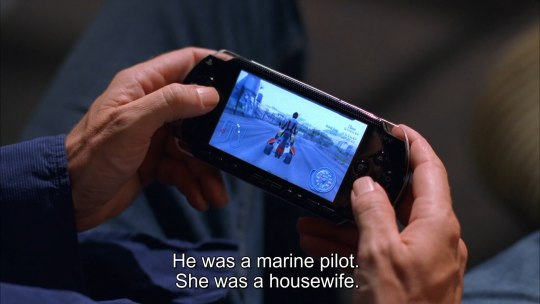









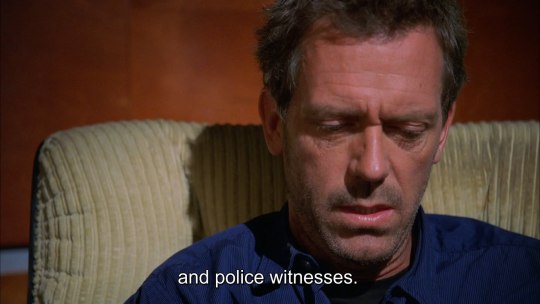


#house md#gregory house#allison cameron#screencap#s02e05 “Daddy's Boy”#longpost#long post#featuring psp he got as a gift!#house's family lore woaw#oh so cameron would be daddy in hameron ok what who said tht#hameron
111 notes
·
View notes
Text
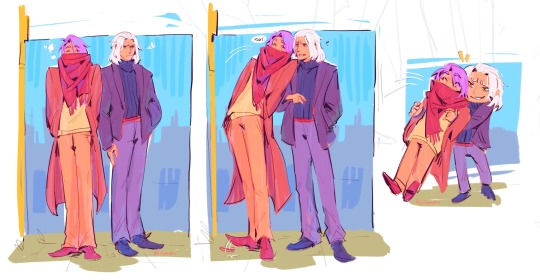
think fast! surprise trust fall
#ffxiv#emet selch#hythlodaeus#hythades#ff14#fanart#all the stuff they used to do as little girls they’d still do for old time’s sake#the stupider the better like even pre-transition they’d fuck around like middle school boys#childhood friends brah who knows what they got up to as kids#ESPECIALLY if emet who constantly gas a stick up his ass considers his youth misspent#ohhhhh im emet selch and grown up now i have a reputation to uphold for the sake of the star#enter: hythlodaeus and azem bringing out his peanut brain that’s still buried in there#like i have a lot in my drafts of them as kids in amaurot and let me tell u it’s kinda funny#like it;s the shit the kids get up to and get into trouble for#combine emet’s insane aptitude of magicks and livid girlchild temper#like UNCONTROLLABLE cranky girltemper#and hythlodaeus’ much more pronounced carefree ‘getting away with it attitude’#dangerous combo for hijinks man they’ve been friends a long time hythlodaeus has seen all of emet’s embarrassing moments#it’s so funny that hythlodaeus is like ‘oh u want to know how he became emet selch ok sit down honey i’ll tell u everything’#emet needs to shut him up before hythlodaeus reveals his lore entire timeline#i can imagine him pinching his lips shut and hythlodaeus is still going#muffled unintelligible still wildly gesticulating#they’re a walking bit and so slapstick together it’s funny how comfy they are even if they riff off each other#these bitches on some universe level soulmate shit my senses were tingling the moment shade hythlodaeus was like ‘oh yeah we were…. close’#gay gay homosexual gay#absolutely completely interwoven into each others’ lives its amazing#AND they’re trans
96 notes
·
View notes
Text
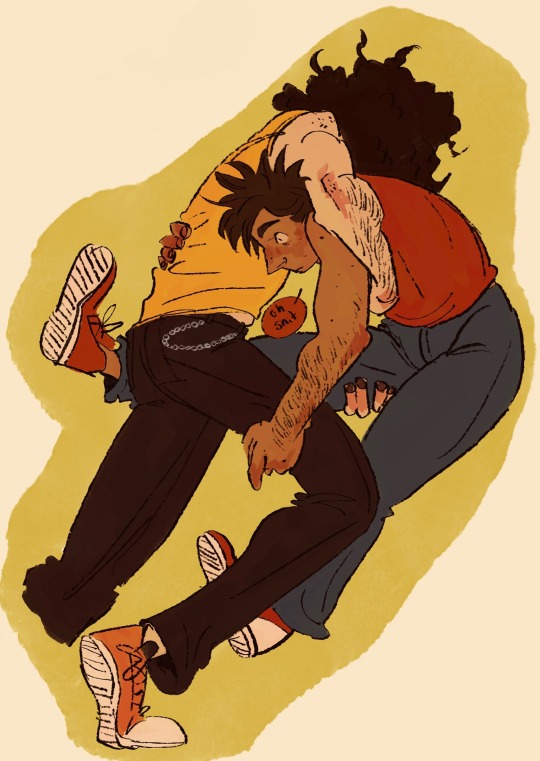
Final installment of the wrestlers 3/3: Steve runs his 5’8 mouth
#drawing#art#stranger things#steve harrington#eddie munson#steddie#steddie fanart#Steve was probably running his mouth as he is aught to do talking bout how Eddie’s a beanpole looking ass and probably falls over when he#throws a ball like he’s on loony toons and so obv Eddie is like oh boy you just ran your short ass into the ground and lunges#steve thinks he’s alright he’s got the angle he’s got the muscle he’s got a grip on him#but Eddie grabs a thigh and wraps his arm around his chest and suddenly Steve’s flying#he thought he saw god or the light he was sure he had died cause how did his big ass self end up airborne?#but no it was just Eddie and his long ass legs and he said up up and away short stack#Eddie needs steve to know he can pick him up and doesn’t ever let him forget it
1K notes
·
View notes
Photo
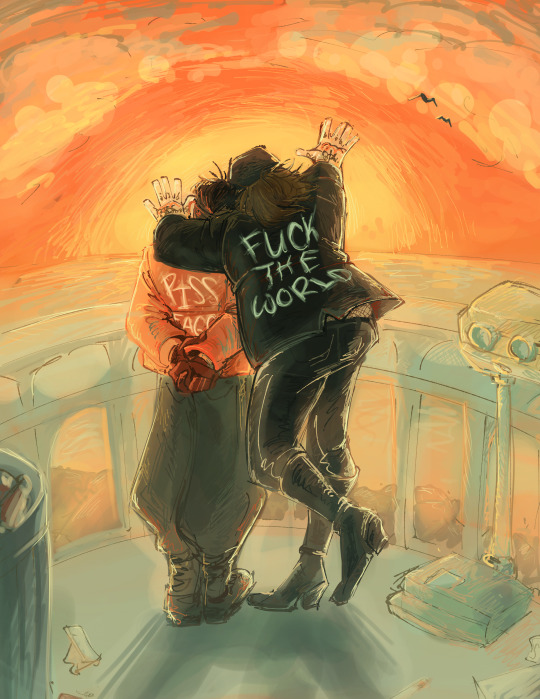
while we are still alive
#disco elysium#kim kitsuragi#harry du bois#kimharry#fan#2023#originalyl they were NOT supposed to be standing this close but every sketch they got closer together#until they were resting their heads together in the final . i had nothing to do with this they chose this themselves#anyway i cant believe its taken me this long to draw The Jackets. long long overdue#song this time is bad bohemian by sea power#oh mmmm jic actually#f slur /#itds covered up but like. you know
2K notes
·
View notes
Text
Hey remember right before the pandemic when a season of a show was about 15-20 episodes? Remember when having 8 episodes what called "a mini-series"? Remember when we could get a season a year and not wait 2 years to get a continuation of a story? remember when shows had time to grow and form an audience? remember that? yeah? cuz i do
#im rewatching the good place cuz im sad#like for fuck sake we cant get shit anymore#fuck netflix#fuck streaming services#yes this is about dead boy detectives#and like#literally every other critically aclaimed show that i loved and never got past one season#dead boy detectives#save dead boy detectives#renew dead boy detectives#please at least let them have a cameo in sandman#speaking of- 2 YEARS!! ITS BEEN 2 YEARS!!!#and i know why it was delayed and im happy the writters and actors get better conditions#but oh my god its been so long i miss them#my stuff
104 notes
·
View notes
Text
Part 1 - Appreciation post for all the TFP universe Autobot mugshot cameos (known and unknown) in RID2015 3x25 (even if the context is that they've been OUSTED against their will)
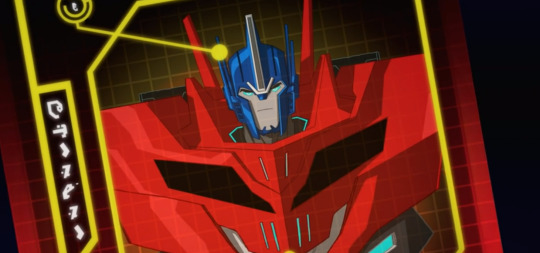
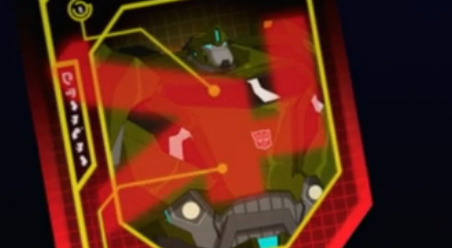


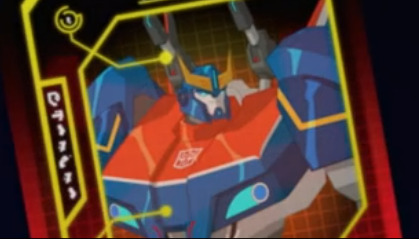
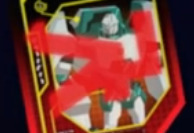
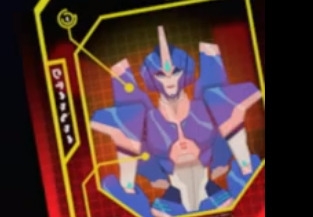
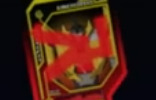

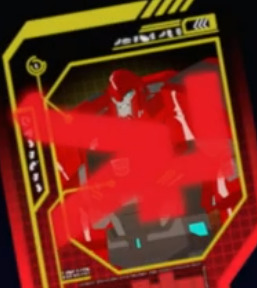













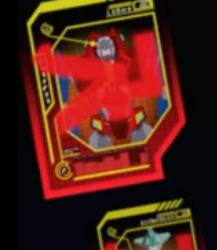
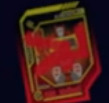
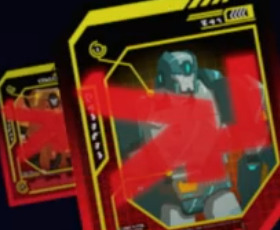


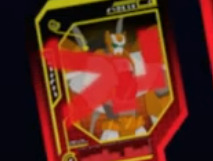
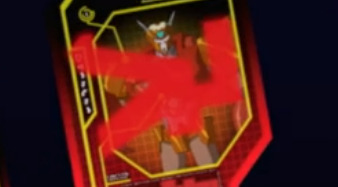
#transformers rid2015#not me and my emotional crutch show comforting my broken soul after rewatching TFP for the nth time#every cameo and reference is another good hit of the Good Stuff#look at how g1 they all got i'm sobbing#smokey got so BUFF#sunstreaker confirmed canon!#boy do i have an angsty fic idea that explains sideswipes abandonment trauma#please tell me what ironhide was like i need to know#they included seaspray??? but he's dead jim#ultra magnus be snatched as ever#tfp universe wouldnt do mirage dirty like ROTB did#KNOCKOUT NOOOOO#is that sandstorm? I cannot tell because the resolution is GARBAGE#prowl look like he got big tiddies in this universe too <3#jetfire my g1 husband what happened to you#trailbreaker??? forever a highly functional alcoholic idc what you say#TRACKS MY REBEL SON#oh NO not the RESCUE BOTS they have done no wrong!!!#powerglide??? he ought to have been in there for as many times as the cons quoted him in this series#gears and.... is that moonracer???? I can only infer by color#BLASTERRRRR oh what I wouldn't give for a blaster/soundwave throwdown#oh this is sandstorm for SURE (then who's the other guy???) and my man KUP#oh no look how good looking they made roddy </3#ELITA AAAAA#wreckgar??? my trash son???#long post#maccadams#please bear with my internal dialogue#is that 6th one supposed to be tailgate??? wasn't him being dead like an ENTIRE plot point for all of TFP lol
217 notes
·
View notes
Note
Tell us something you wish the fandom remembered more about a character if your choice
Horace sleeps with his eyes open
Jacob’s a gifted kid
One time Fiona had a wool hat (beanie) and she gave it to Millard
Hugh and Bronwyn have canonically killed people and Enoch hasn’t
Enoch is at least emotionally intelligent and he proves this multiple times
Enoch being a jerk is masking and he proves this multiple times
Hugh has fuzzy striped socks (they’re bee socks they’re absolutely bee socks I will die on this hill)
Jacob, at one point and at least in his own perception, was chubby (on a similar note: Enoch can wear Jacob’s clothes)
Enoch slept in a broom closet once
Julius is an adult and Horace is not
Bronwyn exists
Victor’s character is entirely fanon we do not canonically have a damn clue what he was like other than the fact that Enoch said he was his friend, he was Bronwyn’s brother, and one time he accidentally sunk a boat with everyone else on it
Fiona has two lines of dialogue in the entire series and she has such a thick Irish accent that Hugh had to make her slow down for anyone to understand her
Fiona (and presumably Hugh if he wasn’t leapfrogging) is the oldest peculiar. It’s not Enoch. She’s sixty years older than he is
Emma was written the exact same way as Noor was before she and Jacob broke up. The only differences are that Emma is worse at communication and Jacob feels less of a need to protect her than Noor
Millard never apologized to Hugh or Fiona (also hot take I guess but I don’t think second trilogy Millard was out of character at all)
Enoch is not a rapist.
Horace is just as snarky as Enoch is
Horace is very capable of taking care of himself. He just also has anxiety
Jacob canonically has PTSD and anxiety (and possibly depression)
I am also guilty of this but nowhere does it ever imply that Enoch has depression I don’t actually know where we got that
Hugh has chubby cheeks
Horace at least used to have a lucky pillow
Emma was never over Abe and it’s very obvious if you pay attention to her character and that does not make her a bad person it makes her flawed and that makes her realistic
These are all children. They are also words on a page that do not exist to be anything but thoughts in someone’s mind. You may do with that what you will but that does not make your actions free of criticism
Liking a character does not equate to agreeing with their actions. Disliking a character is valid regardless of your feelings on that character.
#this got personal i’m sorry#and long#it started as random cute/interesting stuff but then#i love this fandom i swear#if i didn’t i wouldn’t make things for it#just#sometimes#oh boy.#mphfpc
67 notes
·
View notes
Note
how do you think homie would react to reader breaking up with him because they have very different morals (homie kills people, ik he's babygirl but he does just brutally kill people, reader is a pacifist)
-bree(sorry for multiple asks in short time :P)
cw gaslighting, imprisonment, manhandling. no more mr. nice homelander.
"Fine, listen, listen, if it means that much to you, I won't do it anymore," Homelander says, hands lifted placatingly. The way he says it makes it sound like he's doing you a favor. Like you're overreacting to a mild infraction. You stare, mouth agape. "This... This isn't some bad habit. You kill people."
"Yeah," he agrees, a slight strain creeping into his voice. "Yeah! Okay. And? Lots of people kill people. And typically, I only kill people who're also killing people." "Typically," you echo, at a loss. How can he be so flippant about this? It's like he hasn't heard a single word you've said. "You don't care. At all." "Why should I care? Why should you care? It's not like I'm killing people you like, or even know," he says, his exasperation with you intensifying. "But you love me. So just... Cool off, alright? Sleep on it. Before you do something you'll regret."
The shift in his voice when he says that runs a chill up your spine. "Are you threatening me?" "What?" Homelander laughs. "No! Of course not. Babe, listen to yourself. C'mon, I know you're upset-" he moves to take your hand, but for the first time, you yank it from his reach, crossing your arms. His hand hovers in the space yours had been for a moment, his eyes locked on the same spot. He inhales a slow breath, his fingers curling into a fist before dropping back to his side.
When he looks at you, his gaze is bereft of any playfulness. Your denial of him has flipped a switch in him that you've never seen before.
"You're tired," he says, voice set low. Any traces of the lighthearted pretense from earlier has been dropped. "It's late. You have a lot to process. So, we are going to put this aside for tonight. You are going to come to bed with me, and we'll talk about it in the morning, when you're calm." "I am calm," you tell him, refusing to let him make you feel like you're the one being unreasonable. "Please move. I already told my friend I'm on my way," you lie. You wish you had. You wish you realized sooner you would need to. Homelander had always been so utterly devoted to you. He hung on your every word, met your every whim, loved you so thoroughly that he made you feel like his entire world. Only now have you realized the dangers of that kind of love.
His mouth twitches. "Which friend?"
You begin to answer, wanting to give validity to your fiction, but an awful thought occurs to you. Would he hurt them? "It doesn't matter," You reply instead, clutching your overnight bag. "I need space, and I don't want you coming to me before I'm ready. Please, move," you say, voice wavering. He was making this so much more painful than it already was. You do love him, but he's making you feel like you barely even know him.
Homelander taps his hands on his thighs, considering you. After a prolonged silence, just before you open your mouth to speak again, he claps his hands together. "Alright. Sure," he says, stepping forward. You step backwards. "Door's right there." You're immediately relieved, but there's a nagging feeling in your gut. "Thank you," you say softly, adjusting your grip on your bag. "I'll call, okay?" Homelander offers a sideways nod, seeming... resigned. You feel the guilt of it weigh heavily, and for a split second, you question yourself, whether what you're doing is right or fair. You have to steel yourself before your resolve falters. You need time away from him to collect yourself, and figure out what to do about the man you, as it turns out, know very little about.
Just as you pass him, you feel a sudden grip on your arm, and in a flash you're spun around, stumbling back into the penthouse. You stare wide-eyed for a moment, turning back around. Poised exactly as he had been before, Homelander stands in front of the door, hands on his hips. His brows lift slightly. "Well?" Your heart is racing now. "What are you doing?"
"Go on," he says, ignoring your question. "Door's right there."
Anger rolls through you in a heated wave. "I'm not playing this game with you," you say, moving to shove more forcibly passed him this time, but once again he catches you with a hand on your wrist, spinning you around with such ease, you may as well weigh nothing at all. Yet again you stumble back into the penthouse, tears welling in your eyes as you round on him. "Stop it! Get out of my way!" "Door's wide open, babe. All you have to do is get to it, and you can leave," he says, voice perfectly relaxed, devoid of any passion or empathy.
With a frustrated cry, you hurl your bag at him, and full on sprint towards the door. You get closer this time, but just as you reach for the knob, Homelander takes you by your shoulders and spins you right around. Your own momentum carries you further in. You barely catch yourself from falling, letting go a sob that's equal parts rage and heartbreak. Who is this man?
This time, you throw yourself bodily towards the door, screaming your distress, your anger. You do it again and again and again, and every time, Homelander spins you right back around. On the final attempt, as he once again redirects you, the force of your own momentum hurls you to the ground.
"Do you get it yet?" Homelander asks, cocking his head to the side, checking to see if you're picked up on this lesson in futility. "You don't call the shots here. You don't get to just decide we're done. Relationships go two ways, sweetheart," he says. That petname used to give you butterflies. It sounds sour on his tongue now. You hear him sigh, closer to you now.
"Didn't think you'd be that stubborn. But I guess I've always loved that about you when it wasn't pointed at me, huh?" He asks, a playful little lilt slipping back into his voice. You struggle when he scoops you up, you make an animalistic noise of pure aggravation, but it's as fruitless as ever. Homelander is both an unstoppable force and an immovable object, his grip on you like steel. He cannot be stopped, or even hindered, as he carries you towards the bedroom. He sets you down on the bed, and out of pure unthinking fury, you raise your hand to slap him across the face. The strike lands, but Homelander doesn't so much as twitch. Your hand smarts, you may as well have slapped a brick wall. You clutch your wrist, letting go another sob. It aches immediately, frail in comparison to his unyielding frame.
Cupping either side of your face, Homelander swipes away your tears with his thumbs, watching you impassively. There's patience in his expression, though it looks stretched thin.
"I know you're upset," he says, an echo of earlier, as if picking up right from where he'd left off. As if nothing of the last twenty minutes had even happened. "But we'll get through this. And hey, hey, I'm not even mad at you, okay? Because that's what it means when you love someone. You forgive them." You feel numbed by your own plethora of tumultuous emotions, strung out and exhausted. You close your eyes, unable to stomach the loving way he's gazing at you. He kisses your forehead, wringing a weak, hiccupped little noise out of you. "That's my girl. I love you more than anything. You know that, right? That I would never do anything to hurt you?" No matter how gentle his hold on you is, it's inescapable. You have no choice but to face him, bleary as he is through your tear-welled eyes. Unable to push an answer through the tightness in your throat, you just nod.
"That's right. Of course you do. Because if I wanted to hurt you, I would have. It would have been easy, huh?" Those words break something in you. You lose whatever bit of composure you had built back up, and you begin to sob anew, an agonized sound. Homelander's expression twists. He's never liked seeing you cry. He's also never been the source of it.
"Shhh, shhhh, hey, it's alright. You're okay. I would never let anything happen to you," he says, as if he wasn't the very thing happening to you in this moment. He kisses your forehead again, your tear-streaked cheeks, and finally your lips.
You don't have any fight left in you. Not against the press of his lips, and not against the way he brings you under the covers with him, clothes and all.
He pulls you against his chest the same way he has a hundred times before, as if this is any other night that the two of you have fallen asleep in each others embrace.
You hug your arms tight to your chest, crying hard, while he rubs your back, hushing you. Comforting you, as any good boyfriend should.
"It's alright. I've got you," he says, his arms an oppressive force around you. "I've got you."
#oh boy is this ever some ANGST#fair warning this is kinda dark compared to my usual brand#also wtf it got long ANYWAYS#homelander x reader#homelander x you#darling anon#ask and you shall receive#my writing#angst#dark fic#the answer to your question is 'badly' btw!#THANKS BREE ILU#bree
1K notes
·
View notes
Text
Miraculous Ladybug characters and what character in Mario Kart 8 I think they choose as well as if they’re good at the game, based on the vibes I get from them!
Marinette: Used to play Peach but now is purely loyal to Toadette and Toadette ONLY! Canonically great at video games, so Mario Kart is naturally included.
Adrien: CAT PEACH. If anyone else chooses Cat Peach, he immediately gives them a DEVASTATED look and they swap immediately. Very good at the game, he has three stars on every cup!
Alya: Daisy. She will FIGHT anyone else trying to pick Daisy. Nobody is taking Daisy from her. She’s pretty decent at the game but is mostly just here to have fun and maybe kick some ass.
Nino: Strikes me as either a Yoshi guy or Shy Guy guy, though he’s chill if other people wanna pick them. Also decent but has a grudge against certain NPC opponents.
Chloé: Pink. Gold. Peach. Threatens to sue if anyone else takes her. She’s actually pretty good at the game and tends to be VERY agro. No mercy, she needs to WIN.
Kagami: Has swapped between a lot of different people but settled on Link. Incredibly intense in-game. She’s willing to battle to the death.
Félix: Isabelle from Animal Crossing. Do not let it fool you. He wants to WIN and he will red shell you at the worst time to do it.
Luka: Claims he’ll ‘Choose anybody’ but he’ll go for Rosalina if given the choice. He’s just trying to have fun and is 90% of the reason why controllers are not thrown at the TV. Juleka claims he’s “Going easy” on everyone so less feelings will be hurt. (She’s right, he loses on purpose a lot.)
Juleka: Dry Bones or Dry Bowser, she thinks they’re both cool. Doesn’t usually get top 5 if everyone is playing but consistently gets 6-7th! Hitting people with red and blue shells is kinda cathartic for her.
Rose: Sometimes picks one of the baby versions of the characters, but other times chooses one of Bowser’s kids, like Wendy or Roy. The former is for when she’s playing to have fun, the latter is for when she’s gunning for top 3.
Zoé: Pretended to be bad at the game until she realized she didn’t need to spare anyone’s feelings. Very good at the game, knows a lot of the techniques to give herself mini boosts. She LOVES Boswer Jr., especially after becoming Kitty Noire.
Sabrina: Genuinely one of the best players… When she’s not playing with Chloé. Otherwise she’s always letting her win, aiding her the best she can, and pretty much always gets whatever rank is directly behind hers. Claims her favorite character is Baby Peach (it’s actually King Boo).
Kim: DONKEY KONG. Also occasionally Wario. He’s actually kinda terrible at the game but he tends to spams items and makes that everyone else’s problem.
Max: Chooses one of the Inkling Kids (he strikes me as someone who also probably loves Splatoon). He’s good at the game but with how many other people are also good at the game, sometimes he gets overshined. He’s better at fighting games.
Alix: Waluigi 100%. She thinks he’s hilarious and while she doesn’t actually care, she WILL bring up ‘Waluigi should’ve been in Smash Ultimate’ At some point, because she thinks it’s funny. Not great at the game, is here purely to spam items and fuck over as many people as possible.
Myléne: Terrible at the game but plays to have fun! Likes to play Boswer because Ivan has cosplayed as him before.
Ivan: Also terrible at the game but likes losing alongside Myléne. Likes to play as Luigi, though occasionally chooses Dry Boswer if no one else has.
Nathaniel: Rarely plays but will choose Rosalina or Lemmy if he does. Likes to play against other casual people but usually dips if too many competitive people are playing at once.
Marc: Surprisingly really good though isn’t always good about asking if he can have a turn or not. Loves to pick the animal crossing villagers if they haven’t been chosen.
Lila: Claims she’s won a championship before. Is actually terrible at the game with the worst luck and very rarely plays. The first time she was gonna play with the class, she selected Cat Peach. Everyone stared at her as Adrien gave her the most devastated look. She panicked and faked an injury to stop playing altogether.
#miraculous ladybug#Played Mario Kart the other day and thought about this#If you got opinions about your fav that don’t align with mine then let me here them! I’m curious!#oh boy do I gotta tag everyone?#here we go. incoming#marinette dupain cheng#adrien agreste#alya cesaire#nino lahiffe#chloe bourgeois#kagami tsurugi#felix fathom#felix graham de vanily#luka couffaine#juleka couffaine#rose lavillant#zoe lee#sabrina raincomprix#le chien kim#max kante#alix kubdel#mylene haprele#ivan bruel#nathaniel kurtzberg#marc anciel#lila rossi#I. Regret. Many life choices#BUT THERE#MARIO KART OPINIONS!!!#long post
90 notes
·
View notes
Text
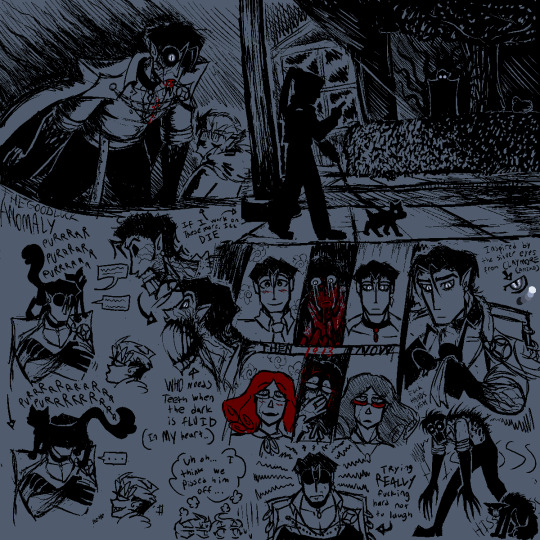
OH ARTHUR BENNETT.. such a gorgeous and intriguing character. terribly burdened by a GRUESOME set of crimes, his light suffocated by a HEAVY century of GUILT. so tragic, so dark and broody, and yet PAINFULLY awkward in any social setting ever
#jrwi fanart#cw blood#jrwi show#jrwi suckening#arthur bennett#OUHH THIS ONE WAS SITTING IN MY WIPS FOR SO LOOOONGwhen i took it out there was mould on it :sob:#BUT i think i was able to fix it up okay#i keep seeing SO MANY MISTAKES RRAAAHHH BUT YOU DONT SEE THEM RIGHT?? THATS ONLY ME. RIGHT?? EXACTLY.#THE KEY IS TO SAY. AND REPEAT AFTER ME. 'FUUUCK IT WE BALL#so anyway. arthur bennett huh? grizzly says that arthur is reaal fuckin difficult to play. and i SUPER get that. i mean LOOK AT HIM..#grizz often needs a minute to think abt what hes gonna say in a way that matches w that Stoic Personality. which is FAIR but also that#ends up making way for awkward confrontations like: the lady in the parky lot. he took too long to answer and scared her away.& I LOVE THAT#arthur is tragic and sad and cool and stoic but hes ALSO awkward and silly and kinda dumb and short sighted. HE HAS COMPLEXITIES#I LOVE WHEN TTRPG CHARACTERS HAVE A GOOD SET OF SHORTCOMINGS. ESPECIALLY WHEN U FIND THEM ONLY AS U PLAY THEM.#I COULd go on and on saying the same things w different words abt arthurs intriguing and entertaining character but i shall spare u. for no#ILL ALSO MENTION HOW MUCH I LOVE HIS FLAVOR THO.. I LOVE TALL HOT BOY WHOS ONE W THE DARKNESS.. I REMEMBER WHEN HE FIRST MENTIONED THE#BADLUCK. N I WAS LIKE OOOHH THATS WHY HIS DESIGN IS SO COOL N CHAOTIC N ASYMMETRICAL. HES UNLUCKY!!! i love love love his design so much...#GRaaauruguguraguhhghghgh what else what else is there for me to spew on abt...i think im reachin a limit here..OH MAGNUS. i hope that#we get to know more abt how magnus and arthur met.. like How they became besties... ouuhh... I ALSO WANNA KNOW MORE ABT MARY DAVIS. LIKEHOW#he also apparently spent alotta time in a zone dominated by edward twilight? all he remembers is constant partying? I WANNA KNOW MORE..#i think i got room 4 one more ramble SO. THE ART PIECE.as i said its gone a lil stale BUT. im still very proud o the bits where hes allScar#I WANNA SEE HIM GET SCARYMORE. I like the idea of shadows solidifying to make him strange and eerie.like TEETH n CLAWS n SPINES n YESS#also the SILVER EYES.no1 does silver eyes like the show Claymore. they make em look so striking and eerie...i also like to think that#human arthur had deep beautiful brown eyes.just in my beaitufl heart.i mean look at him..i wanna cook him n eat him.ANYWAY#i think thats all my ramblin for this piece. now i gotta go cancel a single day i had ata hotel bc my work schedule change last minute FUCK#feel free to ramble in my tags aswell tho i read all of them and i chew on thenm and i love them so sos os mcuh
148 notes
·
View notes
Text
how am i coping? i'm buying brightly colored dishes for my kitchen and art from small artists and thrifting because goddammit i need my house to be cozy when the world is burning and for cozy you need what i call the 4 Cs:
-color
-candles
-collection
-communist revolution
#not dogs#just a very tired american#so many people going on with life as normal and i get that but how much do you take before you break and say enough is enough#in one week of the orange idiot we've got a state sanctioned concentration camp#and transgender folks are being denied renewal and new passports#our CDC is forbidden from making new communications#but there's a massive TB outbreak and bird flu#and yet the media remains quiet#there are protests for americans around the world and i hear more about them from short form content than any other news source#tech billionares have bought their way into our government (and probably yours as well)#(will be doing my part to slow things for fascists from my muni gov office as much as i can lol.)#(bc boy oh boy can i make a phone call take way too long)
33 notes
·
View notes